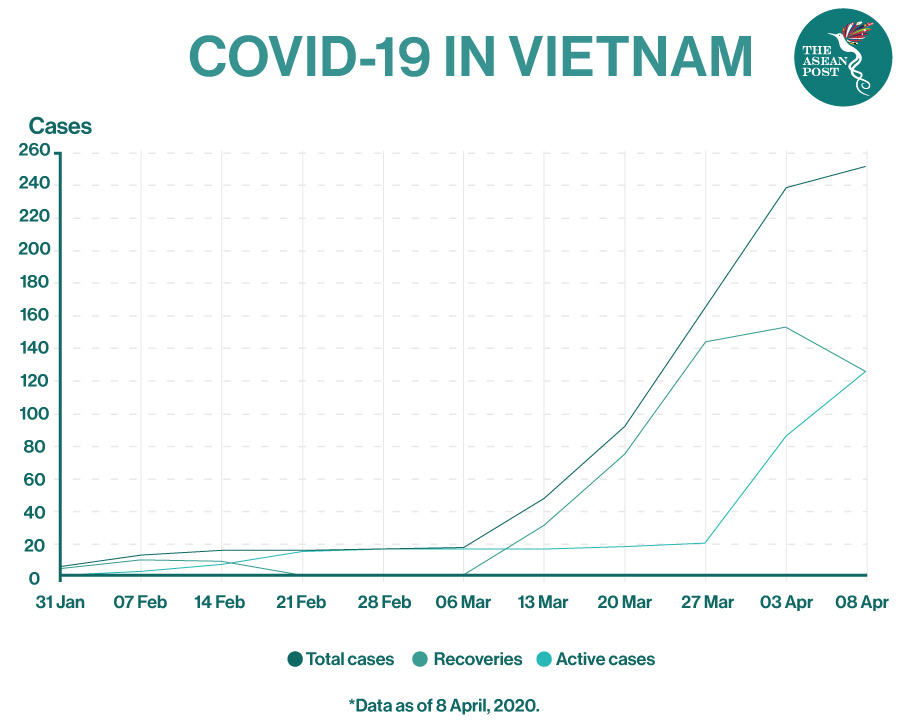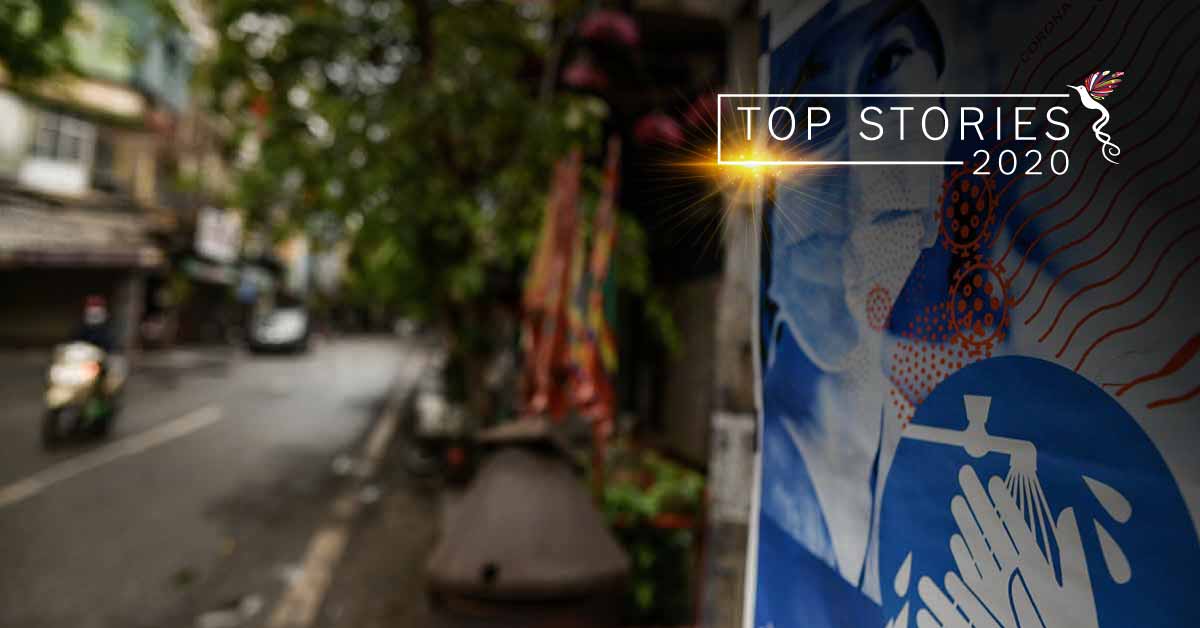As of the morning of 9 April, Vietnam has reported 251 confirmed cases (1,414 to date) of the new coronavirus with over 120 recoveries (1,269 to date). Compared to other ASEAN member states such as Malaysia and Indonesia which have thousands of infections and numerous deaths, Vietnam’s number of cases are relatively low.
Could insufficient testing for COVID-19 be the reason for Vietnam’s low number of reported cases?
It doesn’t appear so.
Vietnam’s Deputy Health Minister Nguyen Thanh Long has assured the public and media that there is no shortage of test kits to diagnose the COVID-19 virus. It was reported that the country has bought 200,000 rapid COVID-19 test kits from South Korea to conduct mass testing.
According to local media, as of 31 March, 21 medical facilities across Vietnam have been approved to administer COVID-19 testing. Other than that, it was reported that the country has also successfully produced its own test kits which could help diagnose the virus infection in just an hour.
Strict Measures
Vietnam announced its first two cases of COVID-19 on 23 January; a Chinese man who travelled from Wuhan, China – where the virus first emerged – to Hanoi and his son who was believed to have contracted it from his father. Nevertheless, the country was reported to have been preparing itself for the outbreak even before its first COVID-19 cases were confirmed.

According to the World Health Organisation (WHO), the health ministry in Vietnam had already issued prevention guidelines when China had just detected 27 infections in Wuhan. The guidelines included close monitoring of border areas and steps to prevent possible infections. A meeting to discuss strategies to combat the new virus in Vietnam was also held on 15 January between officials from the health ministry, the WHO and the Centers for Disease Control and Prevention (CDC) from the United States (US).
Moreover, when China reported its first death on 11 January from the deadly disease, Vietnam promptly tightened medical control at all border gates and airports, according to local media.
The Asia Pacific Foundation of Canada, an organisation focused on Canada’s relations with Asia, recently released a publication which listed two successful measures that Vietnam has taken to win “its war against COVID-19”.
Firstly, is Vietnam’s strict contact-tracing measures. Mass testing has been the strategy for many countries in their response to combatting the pandemic. However, in Vietnam, the country has focused more on isolating infected people and tracing their second and third-hand contacts.
“Mass testing is good, but it depends on the resources of each country,” said Tran Dac Phu, a senior health official advising Vietnam’s Emergency Operation Centre.
According to the WHO, a contact-tracing process has three of the following steps: contact identification, contact listing and contact follow-up.
“Vietnam has successfully conducted tracing via the quick identification of infectious contacts based on the Ministry of Health’s classifications of infected, suspected, and exposed cases of COVID-19 and the rapid mobilisation of health professionals, public security personnel, the military, and civil servants to implement the tracing,” noted the Asia Pacific Foundation of Canada in its report.
Other than that, Vietnam has also imposed strict monitoring of suspected infections. It was reported that the country’s health ministry has worked with tech-firms to “develop an online reporting system in which suspected and confirmed cases of COVID-19, as well as people who were in close contact with them, are entered into a database available in real time to the government in Hanoi.”
Furthermore, Vietnam’s Ministry of Information and Communications (MIC) has also introduced a mobile app called NCOVI to allow the public to declare their state of health on a daily basis.
The World Economic Forum (WEF) has also applauded Vietnam for its swift response in handling the new coronavirus. The WEF also noted that Vietnam “being a single-party state, with a large and well-organised military and security services… has been able to make decisions quickly and enact them promptly”.
Despite Vietnam’s limited resources, the ASEAN member state has been taking proactive measures in tackling the pandemic. Based on a study conducted by Dalia, a company specialising in research tech solutions, many Vietnamese are confident that their government is handling the health crisis well. Perhaps, other nations in ASEAN and the rest of the world can learn from Vietnam’s swift response in handling the COVID-19 pandemic.
Articles selected as Top Stories of 2020 are those that were the most popular among readers of The ASEAN Post for the month in question.
Related articles:
